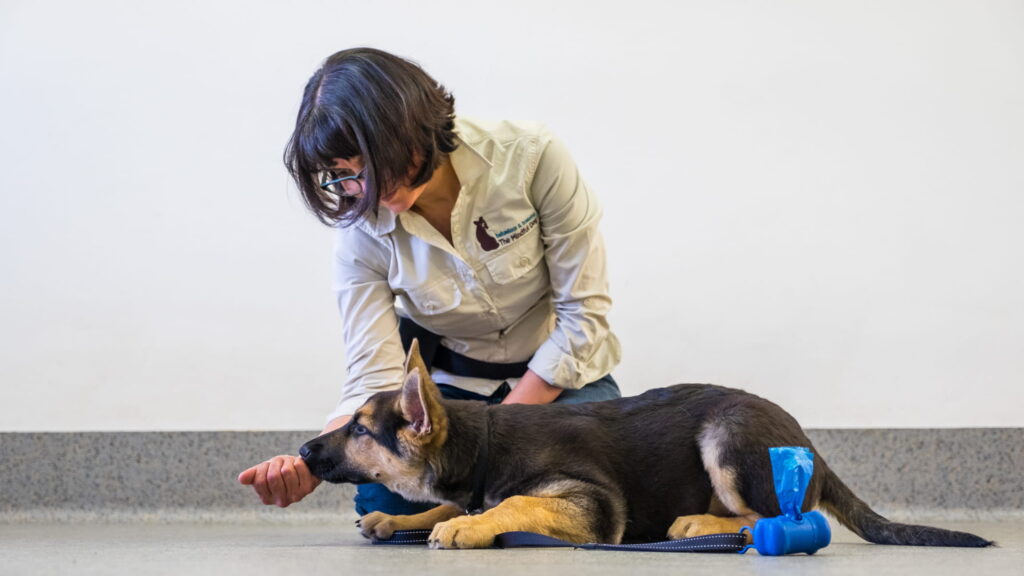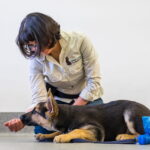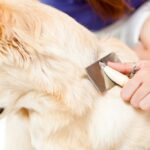You will use the Puppy Socialization Checklist to get your puppy. In short, socialization refers to exposing your puppy to various things, people, and places. This will result in bringing up happy, confident adult dogs. The first weeks of any puppy are highly critical, and one can be very helpful in having a good plan for socialization. Here is the crucial checklist for puppy socialization. This helps ensure that good experiences lead to good behavior that lasts a long time.
In this article, we will explain why the Puppy Socialization Checklist is essential. We will provide a detailed list of experiences to help your puppy. We will also answer some common questions. With this Puppy Socialization Checklist, you can help your puppy be happy, confident, and well-behaved in your family. Let’s begin with puppy socialization and learn how to help your puppy succeed!
Understanding Puppy Socialization
Puppy socialization is the critical process of raising a puppy. It means letting the puppy meet various people, animals, places, or experiences. The purpose here is to help your dog learn to get along as well as possible with other things in the world that surround them. Socializing your puppy should start shortly after you bring him into your home once he is about eight weeks old, and you ought to continue until he gets to be about 16 weeks old. Socialization is a process that should continue for your dog’s whole life.
Why is socializing important?
Stops behavioral problems: Proper socialization may stop fear and aggression in dogs. Dog puppies that fail to socialize tend to develop anxiety or fear with age.
Confidence is built up by allowing the puppy to explore new experiences. The confident dog will get along well and have less anxiety in the new situation.
This helps your puppy get along well with other dogs and people. This will grow in them, and they will likely be friendly and approachable to friends.
The Puppy Socialization Checklist
Use this Puppy Socialization Checklist to help your puppy become socialized well. There are various experiences that you should give to your puppy.
1. Exposure to Various People
Try to let your puppy meet at least 100 different people by the time they are 16 weeks old. These should be people of various ages, sizes, and backgrounds.
People in Uniforms: Introduce your puppy to people wearing hats, uniforms, and other weird clothes. This shall get them accustomed to different looks.
2. Living with Other Animals
Dogs: Schedule playdates with other vaccinated puppies and socialized adult dogs. Your puppy should meet around 50 dogs by 16 weeks.
Cats and Other Pets: Introduce your puppy to cats and small animals in a controlled situation, if possible.
3. Various Sites
Parks and Bust Streets: Take your puppy to parks, busy streets, and quiet areas. This exposes them to new noises and sights.
Public Places: Go to stores that welcome pets, outdoor cafes, and other public areas where your puppy can see and meet different things.
4. Contact with Various Surfaces
Different Flooring: Let your puppy walk on surfaces such as grass, concrete, sand, and carpet. This will help your puppy feel good with different textures.
Stairs and Elevators: Introduce your puppy to stairs and elevators to help them navigate these everyday environments confidently.
5. Handling and Grooming
Touching and Handling: Let your puppy get accustomed to being touched all over their body, like paws, ears, and mouth. This can come in handy later on, particularly in grooming and vets.
To help your puppy feel comfortable with grooming, let him see your grooming tools, such as brushes and nail clippers.
6. Exposure to Sounds
Everyday Household Noises: Socialize your puppy to typical house sounds—the vacuum cleaner, doorbell, traffic, etc. Start with soft sounds and gradually increase the loudness.
Sound CDs: Consider using a puppy socialization sound CD to help your puppy hear different noises safely.
7. Car Ride
Short Trips: Start with short car rides so that your puppy can start to correlate travel with good experiences. Gradually lengthen the trips.
Positive reinforcement: Provide treats and praise to ensure car travel is enjoyable.
8. New Experiences
New Objects: Introduce your puppy to various objects, including bicycles, strollers, and umbrellas. This opens their perception to seeing that new things are not scary.
Outdoor Events: Go to outdoor events or gatherings where your puppy can see many sights, hear sounds, and meet people.
9. Training and Basic Commands
Basic Commands: Teach your puppy basic commands such as “sit,” “stay,” and “come.” This will make your puppy listen to you and create a close bond between you and your puppy.
Leash Training: Start leash training early to ensure your puppy walks nicely on a leash during outings.
10. Regular Vet Visits
Good vet experiences: They enjoy early vet visits by bringing treats and toys. In so doing, the puppy makes good connections with vets.
Conclusion: Puppy Socialization Checklist
Using a Puppy Socialization Checklist is one way you can raise a happy and healthy dog. The experience helps your puppy be more confident and learn good manners by letting him encounter everything, meet everyone, and see everything around him.
Understand that socialization should take place throughout your dog’s lifetime. With time and steady practice, you’ll make a friendly and well-behaved friend out of your puppy. Congratulations! You’ve just begun your journey with this Puppy Socialization Checklist to a great and fulfilling life with your furry friend. Happy socializing!
FAQs: Puppy Socialization Checklist
When Should I Begin Socializing My Puppy?
Begin socializing the puppy immediately after you get it home, typically when they are eight weeks of age. The key window for socialization occurs before about 16 weeks; however, socialization needs to continue throughout the lifespan of your dog.
How Will I Know If My Puppy Is Overwhelmed During Socialization?
Overwhelming may become apparent by frequently yawning, lip-licking, hiding, or attempting to escape. Whenever you notice such signs, take a break and make the situation less intense.
Can I Socialize My Puppy If They Still Need To Complete Their Vaccinations?
It would help if you were careful, but you can introduce your puppy to vaccinated dogs in safe places. Discuss the matter with your vet as to how to mix socialization with health risks.
What If My Puppy Is Afraid Of New Experiences?
If your puppy shows fear or shyness, proceed at their pace. Use positive reinforcement and gradual exposure to help them build confidence. Consider seeking professional guidance if needed.






